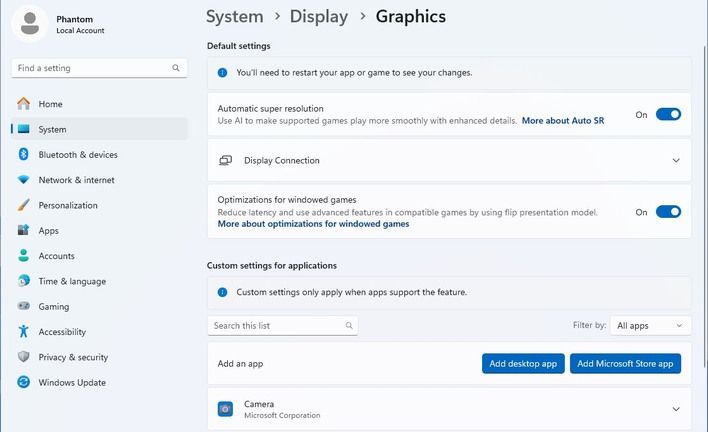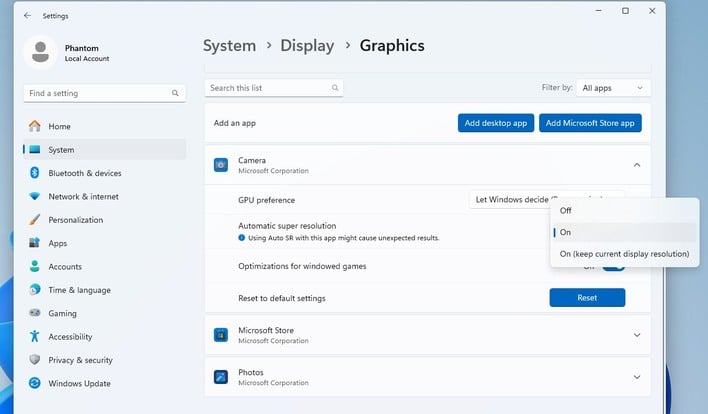Windows Will Soon Have Its Own AI Super Resolution Upscaler For Gaming PCs

Many technology enthusiasts aren't happy about this turn of events, but the reality is that basically all modern games are designed with at least one of dynamic resolution or smart upscaling method in mind. The problem is that each GPU vendor and many game engines have their own form of smart upscaler.
The most widely-available is AMD's FidelityFX Super Resolution, but it also has a number of quality trade-offs. Epic's Unreal Engine includes its own Temporal Super Resolution, which works well, but isn't accelerated by hardware, so it doesn't offer the performance benefits of something like Intel's XMX-accelerated XeSS. Of course, NVIDIA's DLSS is the most pervasive of all, offering arguably the best image quality and performance, but being locked to NVIDIA's own RTX hardware.

The most advanced scalers available today use AI, including NVIDIA's DLSS and Intel's XeSS. Apparently, there's going to be a third competitor in that space now: Microsoft. Indeed, it seems that on supported hardware, Windows 11 24H2 will have an AI-powered "Automatic super resolution" feature that is specifically noted to "make supported games play more smoothly with enhanced details."

There really aren't many details available about this right now. A fair assumption would be that it will work similarly to AMD's Radeon Super Resolution, where the resolution change happens transparently to the game. In other words, the game thinks it's outputting to a lower-resolution display and then the graphics driver (or in this case, the operating system) upscales the game's output to the display resolution. However, it's likely Microsoft will also create an API in DirectX for API-aware games to make use of the scaling in a more nuanced fashion.
The really interesting part is that Microsoft's super resolution feature will apparently be AI-powered. We think that this feature is likely to require an NPU, or Neural Processing Unit. As AI has been the big buzzword for the last couple of years, so it goes that the most recent platforms from both AMD and Intel (being AMD's Hawk Point and Intel's Meteor Lake) include dedicated accelerators for AI applications. There aren't too many applications to make use of these NPUs yet, but it's possible that this feature could target those accelerators.


